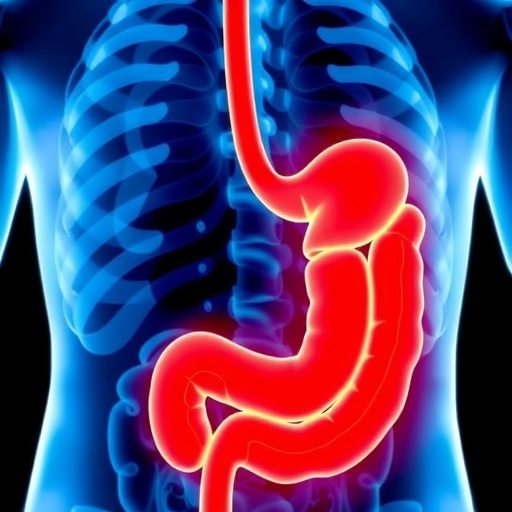In the realm of gastrointestinal procedures, the quest for effective and safe sedatives is paramount, particularly for the aging population that often faces several comorbidities. A groundbreaking study led by Xu and colleagues sheds light on a novel anesthetic, cipepofol, aiming to reshape the current landscape of painless digestive endoscopy. This randomized, double-blind, non-inferiority trial methodically explores both the safety and efficacy of cipepofol in older adults, delivering essential insights that bridge the gap in geriatric anesthetic practices.
Cipepofol has emerged as a promising choice for sedation, primarily due to its pharmacological profile which may offer advantages over traditional anesthetic agents like propofol. By targeting specific GABA receptors, cipepofol not only induces sedation but potentially lessens the cognitive impairment typically associated with anesthetic use in older patients. The implications of using a drug that promises a more favorable safety profile cannot be overstated, especially in light of the increasing prevalence of digestive conditions among the elderly.
The randomized design of the trial provides a robust framework, ensuring that the results are both reliable and applicable to the broader population. By blinding participants and researchers, the study mitigates the risk of bias, ensuring that patient outcomes are solely reflective of the drug’s performance. This methodological rigor is crucial, particularly when evaluating the delicate balance between safety and sedation depth in older patients requiring gastrointestinal interventions.
As endoscopic techniques have evolved, so too has the necessity for sedation protocols that cater specifically to older adults. The study’s findings indicate that cipepofol not only maintains efficacy in ensuring patient comfort during procedures but also exhibits a safety profile that may reduce adverse postoperative events. This is particularly important in geriatric medicine, where the risks associated with sedation can often outweigh the benefits.
Elderly patients frequently undergo digestive endoscopy for a variety of reasons, including screening for colorectal cancers, assessing gastrointestinal symptoms, and performing therapeutic interventions. However, conventional sedatives can pose significant risks in this demographic, including respiratory depression and prolonged recovery times. The introduction of cipepofol heralds a potential shift in clinical practice, as its favorable pharmacokinetics suggest a quicker onset and offset of action, minimizing the time patients spend under sedation.
The trial results reveal that cipepofol not only provides effective sedation but does so with fewer side effects. Many participants reported satisfaction with the procedure, citing a diminished sense of anxiety and discomfort. Additionally, recovery times were markedly shorter compared to those experienced with traditional sedative medications. This can foster a quicker discharge process, thus improving hospital efficiency – a vital consideration in today’s healthcare environment.
An essential finding from the study is the reduction in cognitive side effects often associated with sedative agents in older adults. Cognitive recovery, pivotal in geriatric patients, was shown to be significantly quicker in those receiving cipepofol. Given that many older individuals may already contend with varying degrees of cognitive impairment, this could represent a significant advance in ensuring their safety during medical procedures.
Moreover, as healthcare systems face challenges related to resource allocation and patient throughput, the implications of shorter recovery times and increased patient satisfaction with cipepofol cannot be overlooked. Clinical teams may find themselves better equipped to manage patient flow, ultimately benefiting all stakeholders involved in the healthcare delivery process.
The study not only contributes to the growing body of evidence supporting the use of cipepofol but also opens the door for further exploration into other patient populations that could benefit from its unique properties. With ongoing advancements in anesthetic pharmacology, it is vital to continue evaluating the effectiveness of new agents in various clinical scenarios.
It’s also important to highlight that the efficacy of cipepofol in the context of anesthesia should be measured against the backdrop of existing protocols and standards. As the study underscores, establishing non-inferiority to conventional agents such as propofol is a substantial milestone; however, it also serves as a calling for continued vigilance and research in the field of geriatric anesthetics.
As healthcare practitioners reflect on the results of Xu et al.’s study, there exists a shared responsibility to integrate such findings into clinical practice. The focus should not solely be on the medicines themselves but on the broader implications for patient care standards and outcomes. Ensuring that older adults receive adequate and safe anesthetic care is a vital part of comprehensive geriatric medicine.
In conclusion, the randomized, double-blind trial led by Xu, Zhang, and Yan signifies a notable advancement in the realm of geriatric anesthesia. Cipepofol emerges as a safe and effective alternative for patients undergoing painless digestive endoscopy, providing much-needed evidence for its clinical use. This study not only enhances our understanding of sedation in older adults but also sets the stage for future innovations aimed at optimizing patient care in the ever-evolving landscape of healthcare.
Subject of Research: The safety and efficacy of cipepofol for painless digestive endoscopy in older patients.
Article Title: Safety and efficacy of cipepofol for painless digestive endoscopy in older patients: a randomized, double-blind, non-inferiority trial.
Article References:
Xu, Q., Zhang, J., Yan, X. et al. Safety and efficacy of cipepofol for painless digestive endoscopy in older patients: a randomized, double-blind, non-inferiority trial.
BMC Geriatr 25, 748 (2025). https://doi.org/10.1186/s12877-025-06414-6
Image Credits: AI Generated
DOI: 10.1186/s12877-025-06414-6
Keywords: cipepofol, geriatric anesthesia, digestive endoscopy, sedation, non-inferiority trial.





